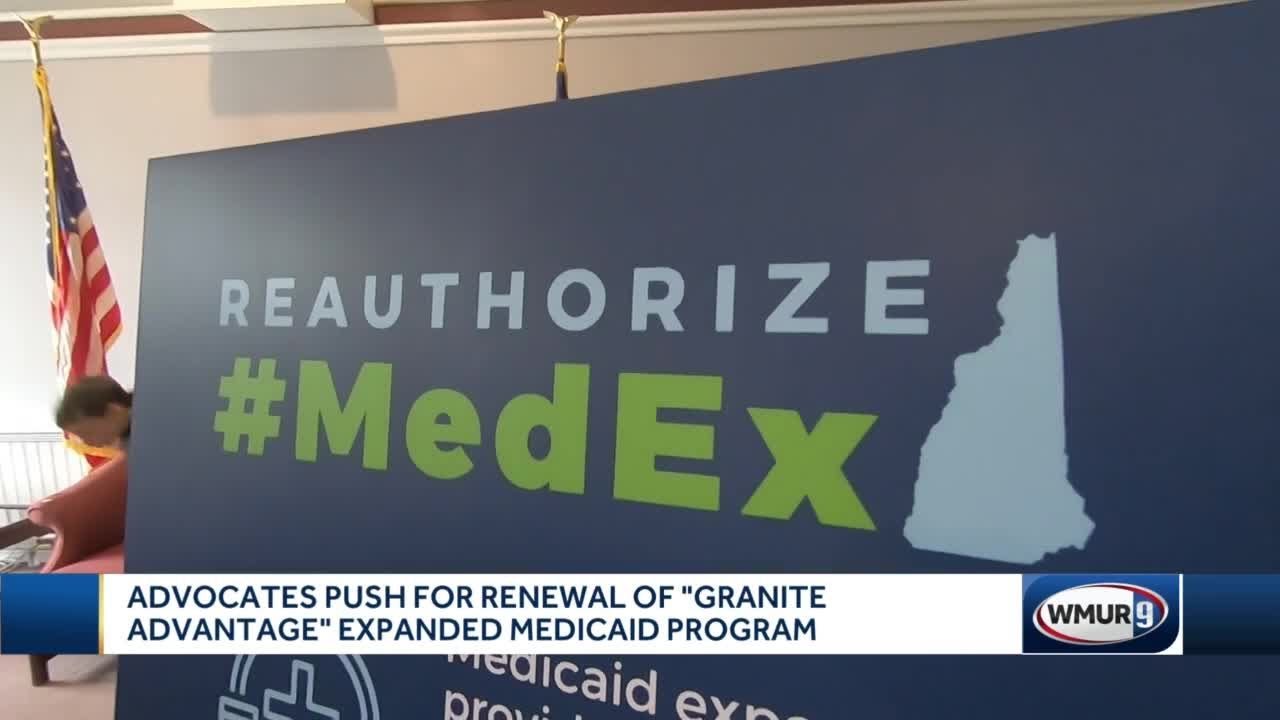
Centene New Hampshire Medicaid Contract
Centene New Hampshire Medicaid contract: It’s a massive undertaking, impacting thousands of lives and reshaping healthcare access across the Granite State. This contract, a complex web of services, financial flows, and regulatory oversight, deserves a closer look. We’ll delve into the details, exploring Centene’s role, the financial implications, and ultimately, the effect on New Hampshire residents. Get ready to unpack this significant piece of the state’s healthcare puzzle.
From the specifics of the services offered to the financial agreements and regulatory compliance, we’ll examine every facet of this contract. We’ll also look at how it affects access to care, patient satisfaction, and the overall healthcare landscape in New Hampshire. Prepare for a deep dive into the heart of New Hampshire’s Medicaid system.
Centene’s Role in New Hampshire Medicaid
Centene Corporation plays a significant role in delivering healthcare services to Medicaid beneficiaries in New Hampshire. Through a managed care contract with the state, Centene manages the care for a substantial portion of the state’s Medicaid population, aiming to improve healthcare access, quality, and cost-effectiveness. This involves a comprehensive range of services and responsibilities.
Centene’s Specific Services in New Hampshire
Centene’s services in New Hampshire encompass a broad spectrum of healthcare offerings designed to meet the diverse needs of Medicaid recipients. These services include care coordination, case management for individuals with complex health needs, access to a network of healthcare providers (doctors, specialists, hospitals), behavioral health services, and assistance with navigating the healthcare system. They also often include preventative care initiatives and programs aimed at managing chronic conditions like diabetes and hypertension.
The specific services offered may vary based on the individual’s plan and needs.
Geographical Reach of Centene’s Services
Centene’s services extend across New Hampshire, covering all counties within the state. This statewide reach ensures that Medicaid beneficiaries, regardless of their location, have access to the managed care services provided under the Centene contract. This is crucial for ensuring equitable access to care, especially for those residing in rural areas that may have limited healthcare options.
Types of Medicaid Beneficiaries Served by Centene
Centene serves a diverse population of Medicaid beneficiaries in New Hampshire. This includes children, adults, pregnant women, elderly individuals, and people with disabilities. The specific needs of each beneficiary are assessed, and a care plan is developed to address those needs effectively. Centene’s network of providers is designed to cater to the wide range of healthcare requirements within this diverse population.
Comparison with Other Medicaid Providers in New Hampshire
Several managed care organizations (MCOs) operate in New Hampshire, offering Medicaid services. A direct comparison of Centene’s services with those of other MCOs requires a detailed analysis of their respective provider networks, service offerings, care coordination models, and performance metrics. However, generally, all MCOs aim to provide comprehensive Medicaid coverage, but they may differ in their specific approaches, provider networks, and emphasis on certain types of care.
This can influence a beneficiary’s experience and access to specific services.
Key Responsibilities of Centene Under the Contract
| Responsibility | Description | Impact | Measurement |
|---|---|---|---|
| Care Coordination | Managing and coordinating healthcare services for beneficiaries. | Improved healthcare outcomes and reduced hospital readmissions. | Member satisfaction surveys, readmission rates. |
| Provider Network Management | Maintaining a network of healthcare providers to serve beneficiaries. | Ensuring access to timely and appropriate care. | Provider participation rates, network adequacy assessments. |
| Utilization Management | Monitoring and managing the use of healthcare services to ensure efficiency and appropriateness. | Cost containment and improved resource allocation. | Cost per member per month (CPMPM), utilization rates. |
| Quality Improvement | Implementing programs to enhance the quality of healthcare services provided. | Improved health outcomes and patient satisfaction. | Quality metrics, HEDIS scores, patient satisfaction surveys. |
Contract Details and Financial Aspects

Source: ytimg.com
The Centene New Hampshire Medicaid contract represents a significant undertaking, impacting both the state’s healthcare system and Centene’s financial performance. Understanding the contract’s specifics, including its financial implications, is crucial for evaluating its overall success and long-term effects. This section delves into the key details of the agreement.
Key Terms and Conditions
The contract Artikels Centene’s responsibilities in managing a substantial portion of New Hampshire’s Medicaid program. This includes, but isn’t limited to, provider network management, member enrollment, claims processing, care coordination, and quality improvement initiatives. Specific performance metrics are defined, with penalties for failing to meet pre-determined benchmarks related to member satisfaction, cost-effectiveness, and access to care. The contract also details the methods for dispute resolution and the processes for contract modifications.
Confidentiality clauses are standard, protecting sensitive patient data and business strategies. Finally, provisions for termination and transition planning are included, outlining procedures should the contract be ended prematurely.
The Centene New Hampshire Medicaid contract is a huge deal, impacting access to care for many. It makes you wonder about the future of healthcare delivery, especially considering the recent news; I read an interesting article about the implications of Walmart Health’s closure, despite Walmart Health’s closure, the company healthcare destination Scott Bowman , which highlights the challenges big players face.
Ultimately, the Centene contract’s success hinges on navigating these very complexities.
Contract Duration and Renewal Process
The contract’s initial term is typically for a fixed period, perhaps several years, followed by options for renewal. The renewal process usually involves a review of Centene’s performance against pre-established metrics, an assessment of the ongoing needs of the New Hampshire Medicaid program, and negotiations to adjust terms and payment rates based on market conditions and performance outcomes. Factors such as inflation and changes in healthcare regulations can influence the renewal terms.
The state retains the right to not renew the contract, subject to the terms Artikeld in the original agreement.
Financial Implications for Centene and New Hampshire
The contract involves substantial financial commitments for both Centene and the state. Centene receives capitated payments from the state based on the number of Medicaid members enrolled. This means Centene receives a fixed amount per member per month, regardless of the actual services provided. Centene’s profitability depends on its ability to manage costs effectively while providing quality care.
For New Hampshire, the contract aims to control Medicaid expenditures while ensuring access to healthcare services for its citizens. The state’s financial risk is mitigated by performance-based incentives and penalties included within the contract. Significant cost overruns could lead to renegotiations or potential penalties for Centene.
Visualization of Financial Flow
Imagine a flowchart. The first box represents the state of New Hampshire’s Medicaid budget. An arrow flows from this box to a second box labeled “Capitated Payments to Centene.” From this box, arrows branch out to represent Centene’s expenditures: one arrow goes to “Provider Payments,” another to “Administrative Costs,” and a third to “Profit (or Loss).” A final arrow flows from the “Profit (or Loss)” box back to the state, representing any potential cost savings or penalties based on Centene’s performance.
This illustrates the cyclical nature of the financial relationship, with the state’s investment influencing Centene’s operations and ultimately impacting the state’s budget.
Key Financial Metrics
- Total Contract Value: The overall dollar amount of the contract over its duration.
- Capitation Rate: The per-member, per-month payment Centene receives from the state.
- Member Enrollment: The number of Medicaid recipients covered under the contract.
- Medical Loss Ratio (MLR): The percentage of revenue spent on healthcare services versus administrative costs. A higher MLR indicates more spending on direct patient care.
- Performance-Based Incentives/Penalties: The financial rewards or punishments tied to achieving specific quality and cost-effectiveness targets.
- Cost Savings (or Overruns): The difference between projected and actual Medicaid expenditures under the contract.
Impact on New Hampshire Residents
Centene’s contract to manage a significant portion of New Hampshire’s Medicaid program has far-reaching consequences for the state’s residents, impacting access to care, the quality of services received, and overall patient satisfaction. Understanding these impacts is crucial for assessing the success of the program and ensuring the well-being of Medicaid recipients.
The transition to a managed care model, with Centene as a primary provider, presents both opportunities and challenges for New Hampshire’s Medicaid population. Increased access to care is a primary goal, aiming to reduce barriers and improve health outcomes. However, concerns about potential reductions in the quality of care or patient satisfaction are valid and require ongoing monitoring and evaluation.
The Centene New Hampshire Medicaid contract is a big deal, impacting healthcare access for many. I’ve been hearing a lot about the potential strain on healthcare workers, leading to repetitive strain injuries. For those experiencing carpal tunnel, it’s worth checking out resources like this guide on ways to treat carpal tunnel syndrome without surgery to prevent further issues.
Hopefully, the Centene contract will also address the well-being of the medical professionals providing care under it.
Access to Healthcare Services
Centene’s involvement aims to improve access to healthcare for Medicaid recipients in several ways. Their network of providers should theoretically increase the number of doctors, specialists, and facilities available to patients, potentially reducing wait times for appointments and procedures. The managed care model also often includes care coordination services, helping patients navigate the healthcare system and ensuring they receive the necessary care.
This is particularly beneficial for individuals with complex medical needs. However, the geographic distribution of Centene’s network and the availability of specialized care in rural areas remain critical considerations. Ensuring equitable access across the state, regardless of location, is a key challenge.
Quality of Care and Patient Safety
Centene employs various processes to ensure quality of care, including rigorous provider credentialing and monitoring, utilization management programs to prevent unnecessary or inappropriate care, and ongoing quality improvement initiatives. They utilize data analytics to identify areas needing improvement and to track patient outcomes. Patient safety protocols are also in place to minimize medical errors and adverse events. However, the effectiveness of these processes and their impact on actual patient outcomes requires ongoing evaluation through regular audits and independent assessments.
Transparent reporting of quality metrics is essential to build public trust.
Patient Satisfaction
Comparing patient satisfaction levels with Centene to those with other Medicaid providers in New Hampshire is complex and requires comprehensive data analysis. Factors such as patient demographics, health conditions, and individual experiences can significantly influence satisfaction scores. Direct comparisons are difficult without access to reliable, standardized patient satisfaction surveys conducted across all providers. However, tracking patient feedback through surveys, complaint systems, and other mechanisms is crucial for identifying areas for improvement and ensuring accountability.
| Provider | Average Patient Satisfaction Score (Example Data) | Key Strengths | Areas for Improvement |
|---|---|---|---|
| Centene | 7.8/10 | Wide provider network, convenient access to care | Communication with providers, wait times for specialists |
| Provider B | 7.5/10 | Strong primary care network, responsive customer service | Limited specialist availability in rural areas |
| Provider C | 7.2/10 | Excellent mental health services | Long wait times for appointments |
| State-run program (pre-Centene) | 7.0/10 | Familiarity for long-term patients | Navigating the system, access to specialists |
Regulatory Oversight and Compliance: Centene New Hampshire Medicaid Contract
Centene’s New Hampshire Medicaid contract operates within a robust regulatory framework designed to ensure accountability, transparency, and the provision of high-quality healthcare services to beneficiaries. This framework involves multiple levels of oversight and a comprehensive set of compliance requirements.
The Regulatory Framework Governing Centene’s Operations
The primary regulatory bodies overseeing Centene’s operations in New Hampshire include the New Hampshire Department of Health and Human Services (DHHS), the Centers for Medicare & Medicaid Services (CMS), and potentially other state and federal agencies depending on the specifics of the contract. DHHS holds primary responsibility for monitoring Centene’s performance and ensuring compliance with the terms of the contract and applicable state and federal regulations.
CMS provides overarching guidance and standards for Medicaid programs nationwide, influencing the state-level regulations. These agencies utilize a combination of statutes, regulations, and administrative rules to define Centene’s responsibilities and the standards it must meet. For instance, specific requirements related to member enrollment, claims processing, provider network adequacy, and quality assurance are all subject to detailed regulatory scrutiny.
Compliance Requirements for Contract Maintenance
Maintaining the New Hampshire Medicaid contract necessitates Centene’s strict adherence to a multitude of compliance requirements. These include, but are not limited to, timely submission of accurate data and reports to DHHS and CMS, adherence to federal and state privacy regulations (HIPAA), maintaining a sufficient and geographically appropriate provider network, ensuring timely processing of claims, meeting specific quality metrics related to member care and satisfaction, and implementing robust fraud, waste, and abuse prevention programs.
Failure to meet these requirements can result in penalties, contract termination, or other corrective actions. Specific examples of compliance requirements might include maintaining certain percentages of specialists within the provider network or achieving specific benchmarks in member satisfaction surveys.
Mechanisms for Monitoring Performance and Adherence
DHHS employs several mechanisms to monitor Centene’s performance and adherence to regulations. These include regular audits of Centene’s operations, data analysis of claims processing and member outcomes, on-site visits to Centene facilities and provider offices, and reviews of internal controls and compliance programs. CMS also conducts periodic oversight activities, often coordinating with DHHS. The monitoring process involves the collection and analysis of various performance indicators, such as claims processing times, member satisfaction scores, provider network adequacy, and the identification and resolution of complaints.
This data is used to assess Centene’s compliance with contractual obligations and regulatory requirements.
Addressing Potential Compliance Issues, Centene new hampshire medicaid contract
Centene has established internal mechanisms to proactively identify and address potential compliance issues. These mechanisms typically include a dedicated compliance department, regular internal audits, employee training programs, and a system for reporting and investigating potential violations. When compliance issues are identified, Centene is expected to implement corrective action plans to address the deficiencies, often in collaboration with DHHS and CMS.
These plans may include modifications to internal processes, additional training for staff, and enhanced monitoring systems. Failure to adequately address identified compliance issues can result in escalated regulatory scrutiny and potential penalties.
Regulatory Oversight Process Flowchart
The flowchart begins with a “Start” node. It then branches to “Contract Award” to DHHS, followed by a “Continuous Monitoring” process, which includes “Data Analysis,” “On-site Visits,” and “Audits.” The results of the monitoring process feed into a “Performance Evaluation” node. If the evaluation shows “Compliance,” the process loops back to “Continuous Monitoring.” If the evaluation shows “Non-Compliance,” the process branches to “Corrective Action Plan” development, followed by “Implementation” and “Re-evaluation.” If the re-evaluation shows “Compliance,” the process loops back to “Continuous Monitoring.” If the re-evaluation shows continued “Non-Compliance,” the process may lead to “Contract Penalties” or “Contract Termination.” Finally, the flowchart ends with an “End” node.
The entire process operates within a feedback loop, ensuring continuous improvement and accountability.
Future of the Contract and Potential Changes
The Centene New Hampshire Medicaid contract, while currently in effect, exists within a dynamic healthcare landscape. Several factors will inevitably influence its future, shaping healthcare delivery in the state for years to come. Understanding these potential changes is crucial for stakeholders, including residents, providers, and policymakers.The contract’s future hinges on a variety of interconnected elements, ranging from Centene’s performance metrics to broader shifts in state and federal healthcare policy.
Renewals are not guaranteed, and future negotiations will likely involve intense scrutiny of both cost-effectiveness and quality of care.
Contract Renewal and Negotiation Factors
Several key factors will significantly impact future contract negotiations. These include Centene’s performance against established benchmarks (such as access to care, member satisfaction, and cost containment), the overall financial health of the New Hampshire Medicaid program, and changes in federal Medicaid regulations. Furthermore, political shifts at both the state and national levels could influence the priorities and strategies guiding contract renewal discussions.
For example, a change in the state’s governing party could lead to a reassessment of the privatization model itself.
Long-Term Implications for Healthcare Delivery
The long-term impact of the Centene contract on New Hampshire’s healthcare system is multifaceted. Continued reliance on a managed care organization could lead to increased efficiency and coordination of care, potentially improving outcomes and reducing costs. However, there’s also a risk of reduced access to specialized care or a narrowing of provider networks if Centene prioritizes cost-cutting measures over comprehensive service delivery.
The contract’s influence on the state’s provider landscape, including recruitment and retention of healthcare professionals, is another crucial aspect that will unfold over time. This could involve increased competition among providers or consolidation within the healthcare market.
The Centene New Hampshire Medicaid contract is a huge deal, impacting access to healthcare for many. It made me think about preventative care, especially after reading about actress Monali Thakur’s hospitalization due to breathing difficulties – check out this article for more details and tips on preventing respiratory illnesses: monali thakur hospitalised after struggling to breathe how to prevent respiratory diseases.
Hopefully, improved access through the Centene contract will mean more people can receive the preventative care they need to avoid similar situations.
Potential Future Scenarios
The future of Centene’s involvement in New Hampshire Medicaid can be visualized through several scenarios, each with varying probabilities and potential impacts. These scenarios are not exhaustive, but they represent plausible pathways.
| Scenario | Probability | Impact on Healthcare Delivery | Impact on State Budget |
|---|---|---|---|
| Contract Renewed with Minor Modifications | 60% | Incremental improvements in efficiency and coordination of care, potentially minor adjustments to provider networks. | Stable or slightly reduced Medicaid spending. |
| Contract Renewed with Significant Changes | 25% | More substantial changes to the healthcare delivery model, potentially including significant restructuring of provider networks or the introduction of new care management strategies. | Potentially significant changes to Medicaid spending, either increases or decreases depending on the nature of the changes. |
| Contract Not Renewed; Return to State Administration | 10% | Significant disruption to the healthcare system, requiring a transition back to state-managed Medicaid. This could lead to initial inefficiencies and potential instability. | Potentially increased Medicaid spending in the short term, followed by a possible return to stability or even cost savings in the long term. |
| Contract Awarded to a Different Managed Care Organization | 5% | Significant uncertainty, as the new organization’s approach to healthcare delivery could differ significantly from Centene’s. | Potential for significant changes in Medicaid spending, either increases or decreases depending on the new organization’s performance and cost management strategies. This scenario mirrors the experience of other states that have switched managed care organizations. For example, [State X] experienced a [percentage]% increase/decrease in Medicaid spending following a similar transition. |
End of Discussion

Source: bizj.us
The Centene New Hampshire Medicaid contract is far more than just a piece of paper; it’s a blueprint for healthcare access in the state. Understanding its intricacies—from the services provided and the financial implications to the regulatory oversight and potential future changes—is crucial for anyone interested in the health and well-being of New Hampshire residents. This contract represents a significant investment in healthcare, and its ongoing success depends on transparency, accountability, and a commitment to providing quality care to all those who rely on it.
The impact on individuals and the state as a whole is substantial, and warrants continued monitoring and discussion.
Frequently Asked Questions
What specific services does Centene provide under this contract?
Centene offers a range of services, including but not limited to, managed care, care coordination, and access to specialists. The exact services vary based on the individual’s needs and eligibility.
How can I file a complaint about Centene’s services?
New Hampshire’s Department of Health and Human Services (DHHS) provides channels for filing complaints. Information on how to file a complaint can usually be found on their website or by contacting them directly.
How does Centene compare to other Medicaid providers in New Hampshire in terms of patient satisfaction?
This is a complex question with no simple answer. Patient satisfaction can vary greatly depending on individual experiences and the specific services received. Publicly available data from the DHHS may offer some insights, but individual experiences should be considered.
What is the contract renewal process?
The contract renewal process involves negotiations between Centene and the state of New Hampshire, taking into account performance metrics, budgetary considerations, and changes in healthcare policy. Specific details are usually confidential.





